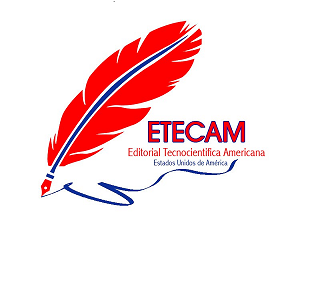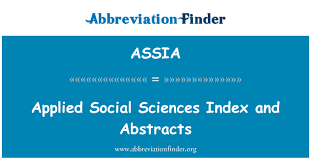Population growing old: is it a Science and a Technological Innovation’s problem?
DOI:
https://doi.org/10.51736/sa.v2i2.40Keywords:
population growing old, science, technological innovation.Abstract
Among the components of the population change that takes place in XXI century, growing old is one of the most dynamic and urgent problem due to the number of people with 60 or more years, it is the one that grows at higher speed in the world (Rodríguez, 2006; ONU, 2007; 2015; Cepal, 2014). Such component provokes several challenges at scientific, academic, political, economical, cultural, social and ethical levels for facing or diminish the negative effetcs they may have on the stability of the societies given by the humanitarian considerations and the posible decrease of the work’s productivity.
Because of its global impact, this problem is relevant not only for the researchers of a special branch of knowledge and the biological technologies (human health), but also for a volumen of the science and technologies wider each time. Population growing old is not an exclusive heritage of a particular science any more to become an object of the international scientifical community and, specifically for the Cuban one, since Cuba in 2025, will be the second most aged nation from Americas.
To develop this paper, the following methods were used: analysis from scientifical sources, dialectic-materialistic analysis, data analysis and statistical comparison. The authors pretend to argue the role the sciences and technological innovation in the effective conduction to the growing olds. It is concluded that sciences and technological innovation has an important role in the effective conduction to the growing olds to ask them answers to these problem.
Downloads
References
Bruno, F. y Acevedo, J. (2016). Vejez y sociedad en México: las visiones construidas desde las Ciencias Sociales. Forum Sociológico, Serie II, Núm. 29; pp. 7-20. Recuperado de http://sociologico.revues.org/pdf/1453.
CEPAL. (2014). América Latina y el Caribe. Proyecciones de Población 2013. Santiago de Chile: Comisión Económica para América Latina y el Caribe, Observatorio Demográfico, (LC/G.2615-P).
González, M. (2013). El envejecimiento de la población en América Latina: Un componente de calidad de vida. Nadir: Revista electrónica de geografía austral, Año 5, núm. 1. Recuperado de http://revistanadir.yolasite.com/resources/Envejecimiento%20de%20la%20poblaci%C3%B3n.%20Mireya.pdf
Guzmán, J. M. (2004). Población, envejecimiento y desarrollo en América Latina y el Caribe. Ponencia presentada en la Reunión del Comité Especial sobre Población y Desarrollo Trigésimo período de sesiones de la Comisión Económica para América Latina y el Caribe (CEPAL), San Juan, Puerto Rico 29 y 30 de junio.
OMS. (2009). Organización Mundial de la Salud. Organismos internacionales y envejecimiento 2009. Recuperado de http://traballo.xunta.es/export/sites/default/Biblioteca/Documentos/Publicacions/congreso_envellecemento/congreso_envejecimiento_activo.pdf
OMS. (2002). Envejecimiento activo: un marco político. Revista Española de Geriatría y Gerontología; Vol. 37(S2), pp.74-105.
OMS. (1998). Growing Older. Staying Well. Ageing and Physical Activity in Everyday Life. Preparado por Heikkinen RL. Ginebra.
ONU. (2017). World Population Prospects: The 2017 Revision, Key Findings and Advance Tables. New York: United Nations Department of Economic and Social Affairs/Population Division. ESA/P/WP/248.
ONU. (2015). World Population Ageing
New York: United Nations, Department of Economic and Social Affairs, Population Division. (ST/ESA/SER.A/390).
ONU. (2011). El envejecimiento de la población mundial. Transición demográfica mundial. New York: United Nations, Department of Economic and Social Affairs, Population Division. (ST/ESA/SER.A/390).
ONU. (2007). El envejecimiento de la población mundial es inevitable. Estudio Económico y Social Mundial 2007. Recuperado de http://www.cepal.org/prensa/noticias/comunicados/5/28935/wess07factsheetSP.pdf.
ONU. (1982). Plan de Acción Internacional sobre el Envejecimiento. Asamblea Mundial sobre el Envejecimiento. Viena, Austria, del 26 julio a 6 de agosto de 1982. Recuperado de
Rodríguez, R. (2006). La sexualidad en el atardecer de la vida. Editorial Oriente. Santiago de Cuba.
Published
How to Cite
Issue
Section
License
Copyright (c) 2020

This work is licensed under a Creative Commons Attribution-NonCommercial-ShareAlike 4.0 International License.





















































